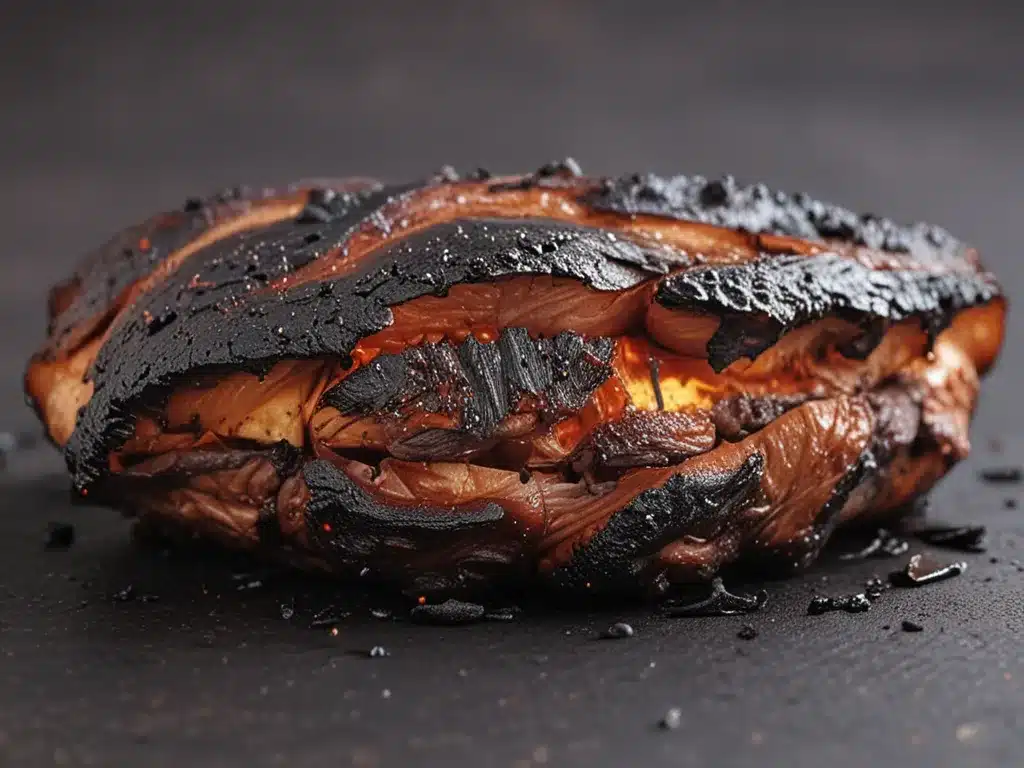Introduction
Dealing with burnt on food can be a frustrating and time consuming task. However, with the right techniques and tools, you can tackle burnt on messes efficiently and with minimum fuss. In this article, I will share tips on how to remove burnt food from pots, pans, baking dishes, and more.
Preventing Burnt On Food
The best way to avoid burnt on food is to prevent it from happening in the first place. Here are some tips:
-
Use the right cookware – Stainless steel and non-stick pans can help prevent food from sticking and burning. Make sure to use the appropriate cookware for the cooking method.
-
Control the temperature – High heat can cause food to burn quickly. Keep the temperature at medium to medium low when cooking foods that have a tendency to stick like meats, cheese, and starches.
-
Use cooking oil/fat – Coating the pan with a small amount of oil or butter can create a barrier between the food and the pan surface.
-
Don’t cook on too high heat – If the pan is too hot, food is more likely to burn.
-
Soak pots and pans – Letting dishes soak in hot soapy water after cooking makes cleaning much easier. Burnt on food will loosen up.
Removing Burnt Food From Pots and Pans
If you do end up with burnt on food, try these methods to remove it:
Soak It
-
Fill the pot or pan with hot water and dish soap. Allow it to soak for at least 20 minutes. This will soften and loosen the burnt food particles.
-
For extra stubborn spots, boil water in the pot or pan for 5-10 minutes. This boiling action can help lift burnt food off the surface.
Use Baking Soda
-
Make a paste of baking soda and water. Spread onto the burnt areas and let sit for 15 minutes before scrubbing.
-
Baking soda is a gentle abrasive that will help lift the charred bits without damaging surfaces.
Scrape With Wooden Spoon
-
A wooden spoon or spatula can be used to gently scrape off any loosened burnt bits after soaking.
-
Apply pressure on stubborn spots using the spoon edge.
Use Salt
-
Sprinkle coarse salt directly onto burnt areas. Use half a lemon to scrub the salt over the burnt spots.
-
The salt acts as a scrubber and the acid from the lemon helps break down the carbonized food.
Clean With Vinegar
-
Heat up undiluted white vinegar in the pan until simmering. Simmer for 5 minutes.
-
Once cooled, use a non-abrasive scrubber like a Dobie pad to clean. The acetic acid in vinegar will help dissolve the burnt food residues.
Use Baking Soda and Vinegar
-
For extreme cases, use baking soda and vinegar together. Sprinkle baking soda onto the burnt area and pour vinegar over it. As it fizzes, use a soft scrubber to clean the spot.
-
The chemical reaction helps lift even the most stubborn burnt on food.
Removing Burnt Food From Baking Dishes and Sheets
Baking dishes and cookie sheets often end up with baked on messes. Here is how to tackle them:
-
Allow the dish to soak in hot soapy water to loosen burnt bits. Use a plastic spatula to gently scrape residue.
-
For stuck on food, sprinkle baking soda and add just enough water to moisten. Let sit for 5 minutes before scrubbing with a Dobie pad.
-
Burnt grease spatters can be removed by spraying the pan with oven cleaner. Place in a plastic bag overnight and then wash. The cleaner will emulsify the grease.
-
To restore baking sheets with burnt on stains, sprinkle with salt and scrub with half a lemon. For deeper cleaning, use steel wool to abrasively remove discoloration.
-
To clean a burnt ceramic baking dish, fill with water and add denture cleaning tablets. After bubbling stops, the food bits can be scrubbed off easily.
Quick Tips
-
Never use abrasive scrubbers like steel wool on non-stick cookware as it can damage the coating.
-
Don’t soak aluminum pans for too long as it can discolor the metal.
-
Seasoning cast iron pans regularly will create a non-stick patina and prevent burning.
-
Burnt milk scorches easily. Immediately soak pan in cold water before heating to loosen particles.
-
Run plastic utensils under hot water before cleaning to avoid bending or warping.
Conclusion
Dealing with burnt on messes may require some elbow grease but using the right techniques can definitely minimize the fuss involved. Allowing pots and pans to soak before scrubbing and using ingredients like baking soda, salt and vinegar can help lift burnt food so you don’t spend all day cleaning. With some trial and error, you’ll find the methods that work best for your cookware.







